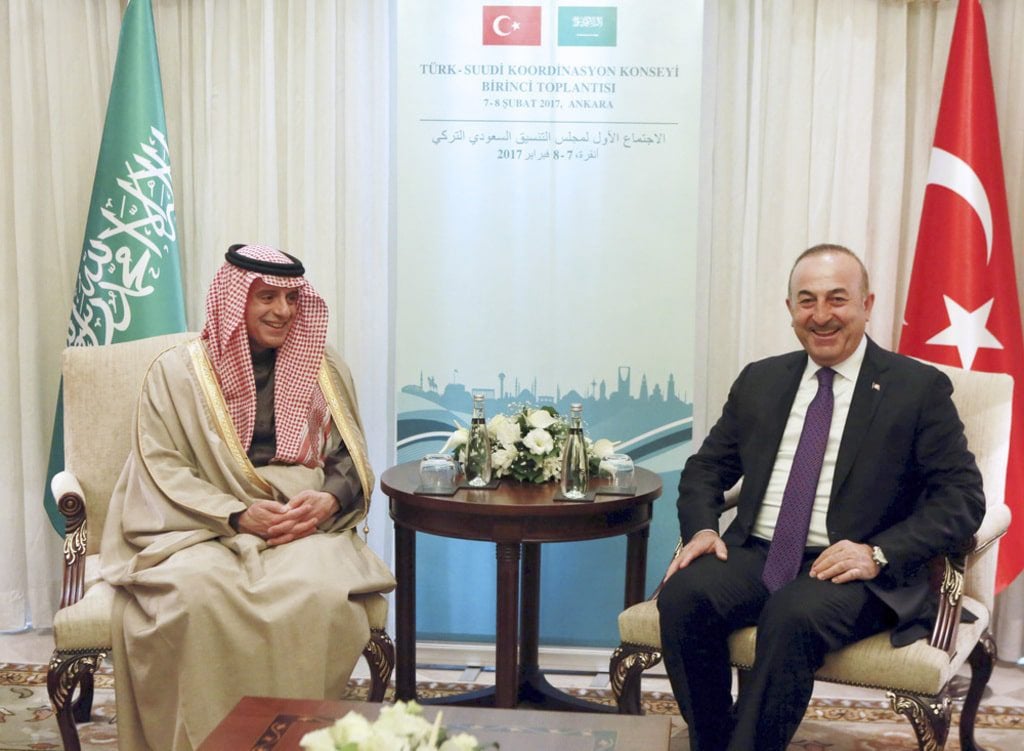
Warning its citizens not to visit Turkey, criticizing Turkish President Recep Tayyip Erdogan during public speeches and pushing Saudi media to criticize Turkey and Erdogan are evidence of the growing tension between Saudi Arabia and Turkey. This is the direct result of the Qatar diplomatic crisis that started in June 2017.
Saudi Arabia, while attemptingg to isolate Qatar from the rest of the region for supposedly ‘supporting extremists and funding terrorism’, did not expect to encounter resistance from its longtime allies. But Turkey, which has been on good terms with the kingdom since it was established in 1932, did not join the 12 countries backingd the blockade of the tiny Gulf state. Indeed, it chose to support Qatar, refusing to shut down its Qatar airbase, one of the demands made by Saudi Arabia and its allies for the lifting of the blockade. At the time, Turkish Defence Minister Fikri Isikhad said that the base aims to train Qatari soldiers and increase Qatar’s security. According to the Milliyet newspaper, he also said that “no one should be disturbed” by the Turkish presence in Qatar. Turkish parliament even fast-tracked the deployment of Turkish troops to Qatar.
Fuelling Saudi Arabia’s anger, Turkey sent additional troops to Qatar in December 2017, and the two countries signed an agreement in March 2018 to establish a naval base and training centre and to send 60,000 more soldiers. In response, Saudi Arabia’s powerful Crown Prince Mohammed bin Salman (MBS) described Turkey as part of a “triangle of evil” along with Iran and hardline Islamist groups.
“MBS keeps taking big decisions without thinking about the future,” Yayha Assiri, head of the human rights NGO ALQST, told Fanack Chronicle. “He rushed into a war with Yemen and can’t finish it, he started isolating Qatar but with minimal results, and he is now targeting countries like Oman, Kuwait and Turkey for not being supportive enough in his battle against Qatar. European countries and Australia don’t support him either, but he can take resolutions against Oman, Kuwait and Turkey, not against strong Western powers. The result is that he is being more and more isolated. You see that the critics of Erdogan and Turkey in the Saudi media, which are the voice of the ruling family, are increasing every day.”
MBS also fears an alliance between Turkey and Iran, Saudi Arabia’s historical rival, notably on the question of the Kurds. In an article for the Asia Times on 31 March 2018, foreign affairs analyst Khalid Ibn Muneer wrote, ‘While the Iranian and Turkish governments have seen the Kurds as a hostile entity, a threat to the sovereignty of Iran and Turkey alike, Saudi Arabia has found them to be a key instrument to exert influence among the non-Arab populace of the Middle East… As the Iraqi government is now under the influence of Iran, Kurds offer a window to the House of Saud to counter the influence of Iran. The Saudi king’s offer to mediate between Baghdad and the Iraqi Kurds after the meltdown between them due the referendum made the intention of Saudi Arabia to face Iran and Turkey alongside the Kurds very clear.’
Iran and Turkey’s ties have also extended to increased trade, cooperation and intelligence sharing. According to Ibn Muneer, ‘In order to maintain strategic dominance over the Shiite spectrum, Iran will readily concede Turkish leadership over the Sunni world at the expense of Saudi Arabia, its arch rival. Tehran’s establishment will give preference to a friendlier Middle Eastern power having convergent views over Kurds than to a radically unpredictable Saudi Arabia … On the other hand, Turkey will have a strategic interest in seeing a Shiite crescent encircling the Saudi monarchy.’
All of these factors indicate a grim future for the relations between Turkey and Saudi Arabia, as the latter takes steps towards rapprochement with Israel to counter its growing isolation.
“Saudi Arabia is just showing more and more signs of wanting to destabilize the region,” Assiri told Fanack Chronicle. “Saying to its citizens it’s better not to go on holiday to Turkey is a sign of the direction the kingdom is taking towards Turkey. It won’t have a big impact, but it’s a big thing in terms of symbolism. I really think Saudi Arabia is against any sign of democracy or respect for human rights in the region, and countries like Turkey, Kuwait and Egypt before the coup [in 2013] showed some progress [in these areas].”


